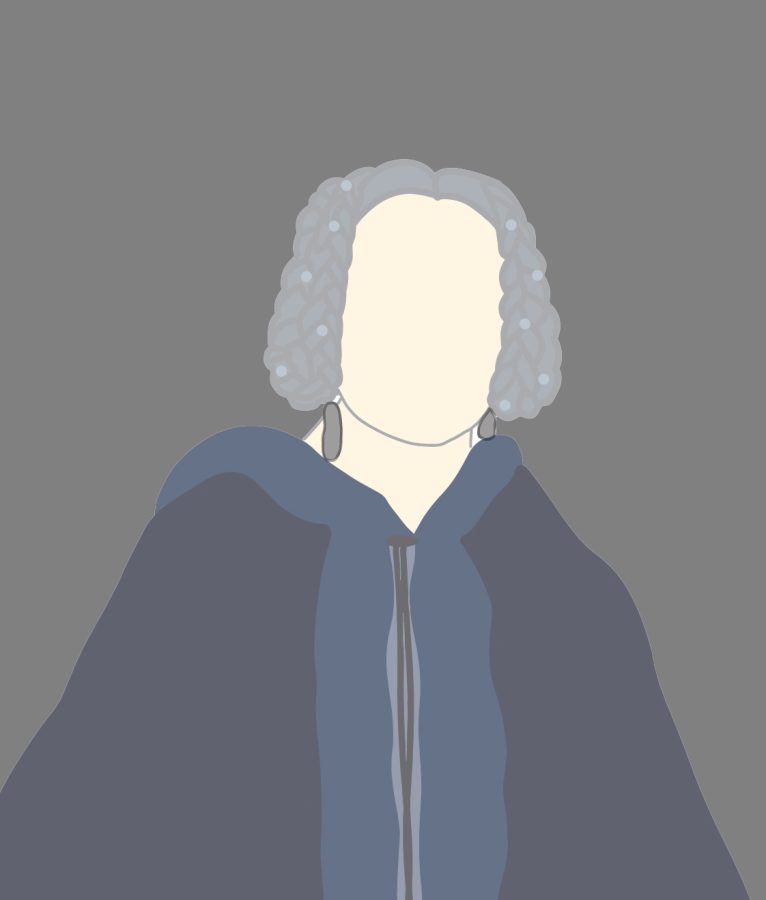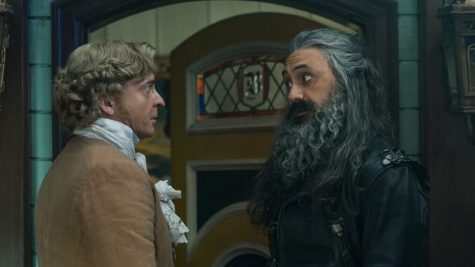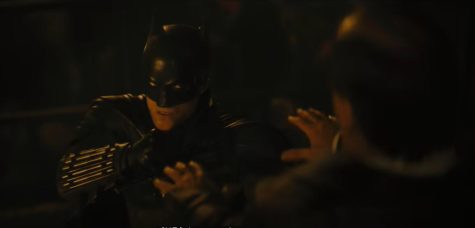Period piece proves powerful
‘Last Duel’ raw in its intensity, humanity, mercilessness
Director Ridley Scott and his team’s choice to use a muted, gray color vividly represents the difference between how Marguerite views her assault compared to the men in her life.
20th Century Studios You Tube Channel
March 15, 2022
TW: Mentions of rape/sexual assault.
The Last Duel opens on a cold, wintry day in Paris in 1936, where we see the beginning of a duel between smug squire Jacques Le Gris (Adam Driver) and embittered knight Jean de Carrouges (Matt Damon). Jean’s wife Marguerite (Jodie Comer) looks on with a barely concealed expression of apprehension.
From there, the film takes a segmented approach, where its events are told three different times from the perspectives of Jean, Jacques and Marguerite.
The first chapter shows the beginning of the volatile relationship between Jean and Jacques. They develop a mutual respect for each other, but their relationship begins to fracture as Jacques continues to gain more and more favor with their liege, Count Pierre d’Alençon, a pompous womanizer (Ben Affleck). Each of their interactions simmers with undercurrents of tension and resentment, which inevitably comes to a boil when Marguerite accuses Jacques of rape.
The next chapter, “The Truth According to Jacques Le Gris,” casts Jean as a frustrated, pathetic man whom Jacques has to defend in front of Pierre. Jean’s repeated attempts to gain the respect of Jacques and Pierre fall on deaf ears, as they mock and deride him with witty and merciless dexterity.
‘The Last Duel’ succeeds where other stories about sexual assault and corrosive male power have failed.
The minute Jacques meets Marguerite, his self-entitlement and privilege are on full display. He convinces himself that, due to their shared intelligence and love of literature, he’s entitled to have her as his. After he rapes her, and it is indeed rape, he goes to a priest and confesses to adultery. The final chapter, titled “The Truth According to Marguerite de Carrouges,” portrays Jean and Jacques as brutish and animalistic. It’s shocking how cold and callous Jean is to Marguerite in her account of events, as he essentially treats their marriage as a business arrangement, devoid of passion.
When she finally tells him about her rape, he downplays her pain by viewing Jacques’s rape of her as a crime against him.
“Rape is not a crime against a woman. It is a property crime against her male guardian” is what Jacques’s lawyer had said when discussing his case with him, and Jean’s reaction to his wife’s accusation proves the lawyer right, at the cost of Marguerite’s own agency.
The chapters do a stellar job of portraying the deep contrast between Marguerite and Jacques’s views on their relationship. When Jean insists that Marguerite kiss Jacques when they first meet, in Jacques’s warped version of events, Marguerite kisses him passionately and longingly. In Marguerite’s account of events, she kisses him chastely and nothing more. During the scene in Marguerite’s chapter, when Jacques enters the castle of Jean, Marguerite kicks off her shoes and blindly mounts the stairs in a rushed panic as Jacques chases her. In Jacques’s version of events, her shoes are daintily removed.
It’s Comer who gives the film it’s beating heart. She plays Marguerite with a quiet strength and spirit that allows us a glimpse into her character’s internal conflict, as she struggles with the ramifications her accusation has while also knowing that she couldn’t just stay silent.
The film boasts exceptional performances, with Driver playing up his character’s smarm to an extreme level. Damon gives a commanding performance as his character alternates between being quietly intense and unflinchingly brutal. In the case of Affleck, whether he’s mocking Jean or talking with Jacques, he finds a way to turn every serious matter his character discusses in the film into a joke. He clearly has fun in the role, which more than makes up for his character’s lack of depth.
Ultimately, however, it’s Comer who gives the film it’s beating heart. She plays Marguerite with a quiet strength and spirit that allows us a glimpse into her character’s internal conflict, as she struggles with the ramifications her accusation has while also knowing that she couldn’t just stay silent.
Director Ridley Scott and his team’s choice to use a muted, gray color palette for the film is clever in two ways. It functions not only as a tribute to the last name of its antagonist, but also as a representation of how Marguerite’s views of her assault compared to those of others. The film commits to a nuanced exploration into what has and hasn’t changed regarding attitudes towards victims of sexual assault. By affording Marguerite her own agency and personality, The Last Duel succeeds where other stories about sexual assault and corrosive male power have failed.


















